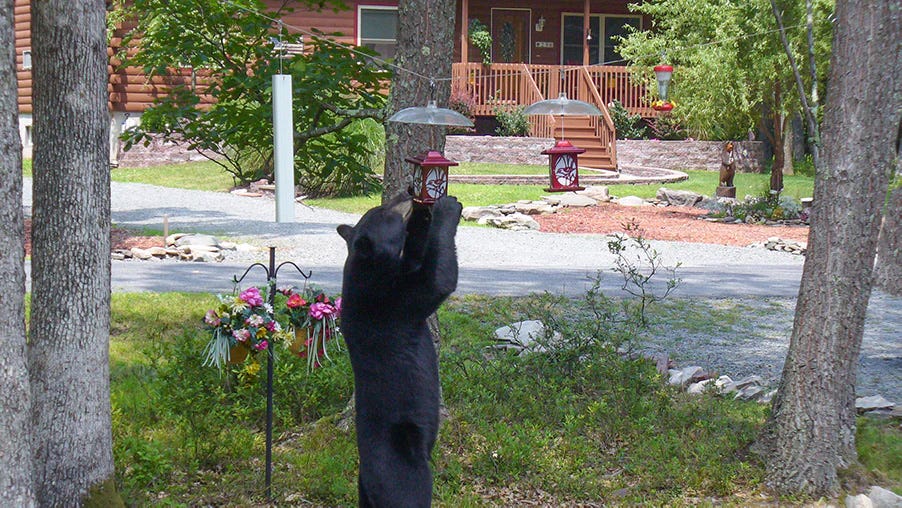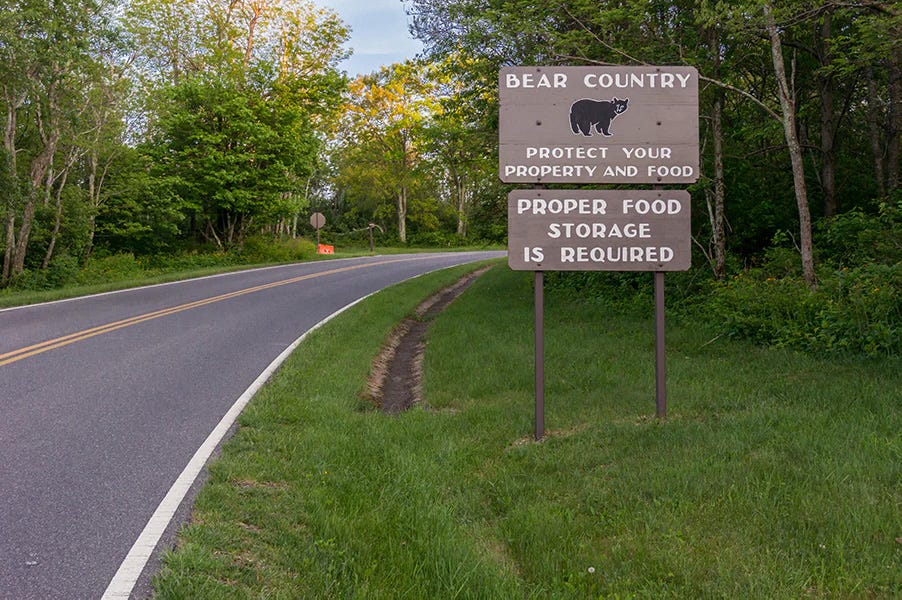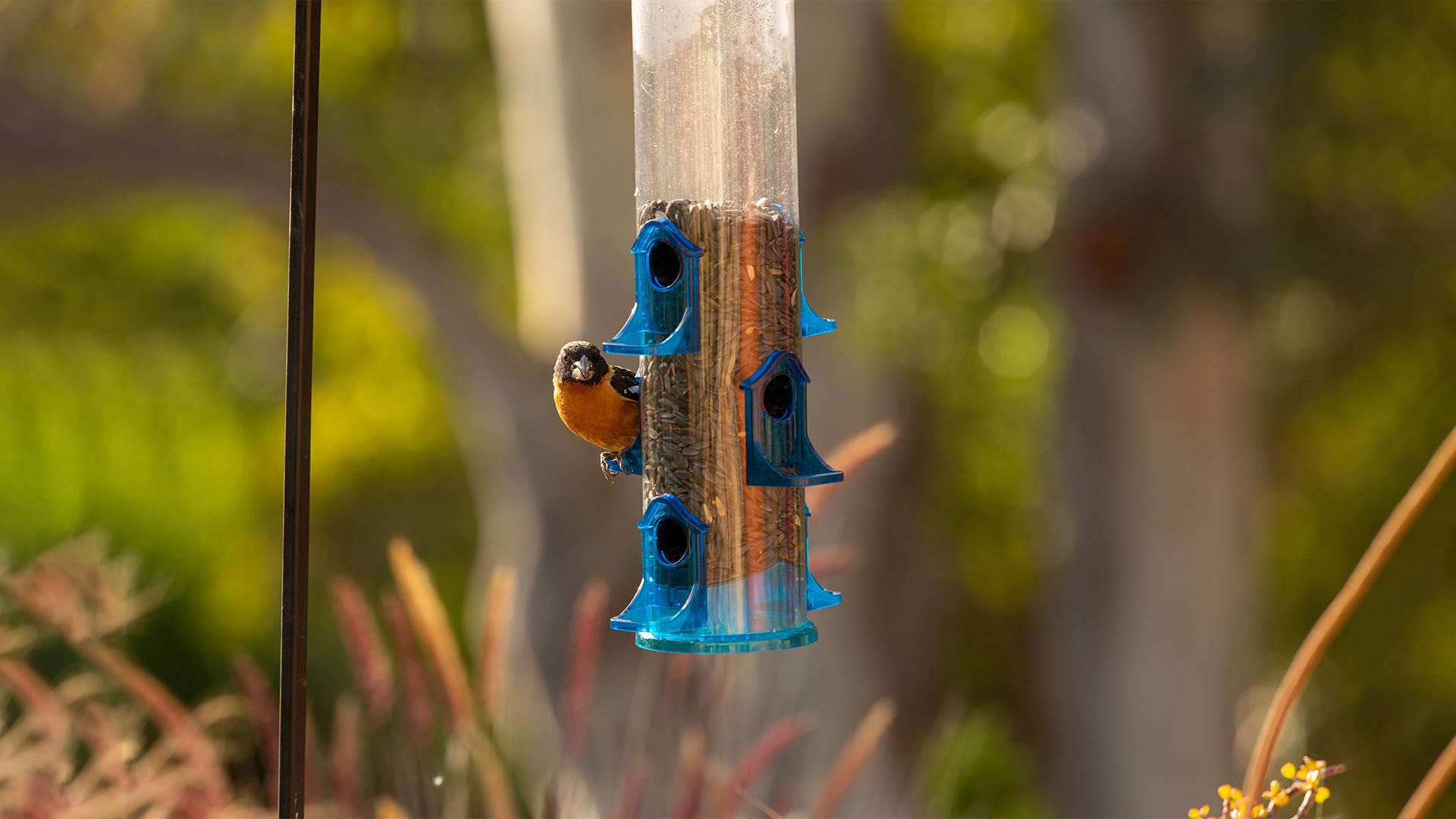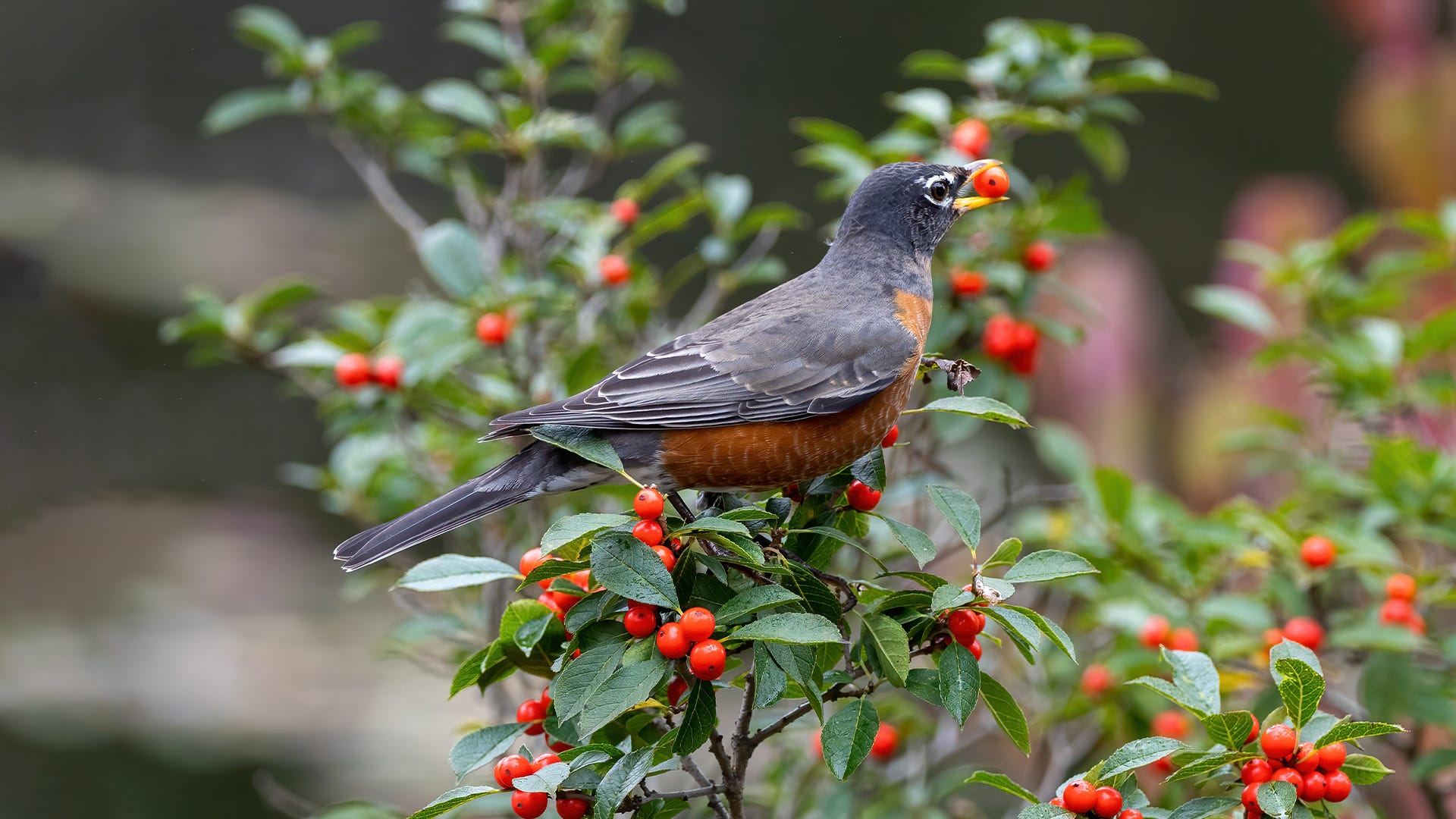
At first, a bear might visit a feeder but you could be unaware of their attention. How can you tell if a damaged feeder is actually the work of a bear rather than a deer or raccoon? Bears may only visit your feeders at night, but even if you don’t actually see the animal, you can look for telltale signs of their handiwork.
First, examine the dirt and grass around your feeding area for tracks, scat, or shed fur that would indicate a bear visit. Also check nearby plants and shrubbery, which could hold clumps of bear fur if the animal rubbed against branches or thorns. Next, check the bite pattern or look for heavy claw marks on the feeders. These could indicate a much larger animal than typical feeder pests.
Consider your local range and habitat to determine if bears may be the culprits behind feeder raids. While different bears are fairly widespread throughout North America, they are rarely seen in heavily urbanized areas. Though, they can venture into the fringes of suburbia or rural communities. Contact local wildlife officials to ask if any bears have been seen in your area recently.
Finally, the extent of damage on your feeders may be a clear indication of a bear visit. Squirrels and chipmunks will chew feeders. Raccoons can be experts at opening feeders and causing minor damage. Only bears will significantly damage or destroy large, sturdy feeders. If a feeding pole has been completely knocked down and the feeders crushed or other heavy damage is present, it is likely that a bear has been at work.
See also: Deterring Raccoons from Your Bird Feeders
The Dangers of Bears
Bears are strong animals and highly protective of their young. They can be dangerous to both pets and humans, and can cause grievous injuries or fatalities if agitated. As wild animals, they can be unpredictable, and even a bear that may seem docile and calm can suddenly become aggressive. While these dangers are understood, it is also important to recognize that bears are themselves in danger if they are coming to bird feeders.
- Bears will often opt for easy meals, but a lot of birdseed or other bird-friendly foods in their diet does not provide the healthiest nutrition, particularly for growing cubs.
- Bears can catch diseases from dirty feeders or food contaminated with feces, and can then spread those diseases to other bears and local wildlife.
- Sharp shards and broken feeders can easily injure a bear’s mouth, paws, or eyes, which can lead to infections and illnesses.
- Bears used to wandering in a neighborhood are at much greater risk for being hit by vehicles, accidentally shot, or other dangerous situations.
Because of the dangers bears pose to humans as well as the risks they face when coming into neighborhoods, it is best to bear-proof bird feeders and remove the temptation for bears to come too close.
See also: How to Successfully Squirrel-Proof Your Bird Feeders
Bear-Proofing Feeders
Before taking steps to keep bears away, first contact local officials to learn if bird feeders are even permitted during active bear months. In areas where bear activity is common, feeders may be restricted or prohibited in order to reduce the risk of unwanted encounters. If there are guidelines in your region, be sure to follow all recommendations for bear-proof safety. Even without local restrictions, there are easy ways to help bear-proof bird feeders and feeding stations.
Remove Feeders
Locking feeders in a sturdy shed or garage at night will keep them out of reach of bears. Take care that extra seed is also stored in appropriate bear-proof containers or indoors.
Keep the Feeding Area Clean
Clean up spilled seed underneath feeders that could still attract foraging bears. Netting or platforms below hanging feeders will keep seed from spilling. Lawn vacuums and raking can clean up any seed that does get through.
See also: How to Clean Your Bird FeedersUse Bear-Proof Poles
Sturdy poles 10-12 feet high can keep bears away from feeders. The poles should be securely cemented so they cannot be tipped over, and metal poles are best to discourage climbing.
String Feeders on Wires
Bird feeders can easily be strung on thin wires between two poles or trees, using a pulley to raise and lower the feeders for cleaning and refilling. Bears cannot climb thin wires, but the feeders should still be 10-12 feet high and at least 5-6 feet away from any tree a bear could climb.
Choose Alternative Foods
Bears aren’t fussy eaters, but they may not be as willing to raid feeders for bitter seed, such as safflower seeds or Njyer. Using a pepper-treated seed can also discourage bears from usurping meals.
Eliminate Other Foods
Removing other easy food sources can keep bears from raiding feeders at the same time. Be sure there is no pet food outside. Securely cover all trash cans or compost piles so bears cannot root for scraps.
Use Bear Deterrents
There are a range of products available to help keep bears out of your yard. These include motion-activated lights and sprinklers, as well as sonic devices that will shoo bears on their way. Choose products that work best for your property and install them according to the recommended guidelines for the best results.
To keep bears away from your feeders as safely and efficiently as possible, it is best to use a number of different techniques to discourage them. The harder a bear has to work to find a meal at your feeders, the more likely the bear is to simply go elsewhere for its next snack.
If Bears Won’t Leave
Even with all the bear-proofing methods at your disposal, it is possible that bears may still visit your feeders. Do not attempt to injure, capture, or otherwise disrupt the animal. Instead, contact local authorities with details of your sighting. They may be able to offer additional suggestions for keeping bears away. In extreme cases, wildlife officials may safely relocate the bear to a more suitable location.
Bears may not be common guests at bird feeders, but when they do arrive, they can cause big problems. By taking different steps to bear-proof bird feeders, you can keep these guests away and ensure your feeders are safe for your feathered friends.
See also: How to Keep Chipmunks Out of Bird Feeders






